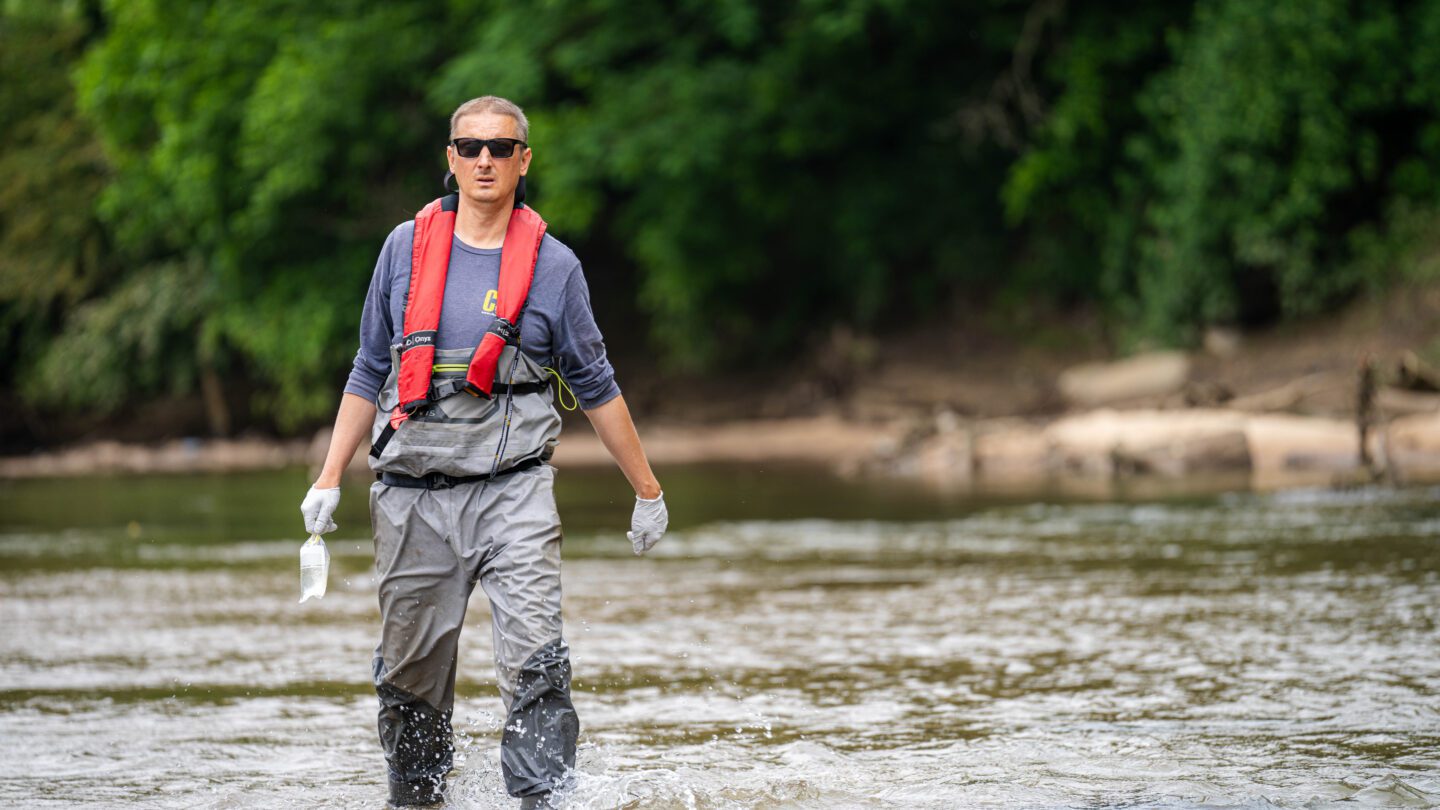The Chattahoochee Riverkeeper (CRK) is planning to sue the City of Atlanta under the federal Clean Water Act in response to ongoing sewage spills at the R.M. Clayton Water Reclamation Plant in northwest Atlanta.
Since March, CRK has reported high levels of E. coli and other contaminants downstream of the R.M. Clayton plant, which is Georgia’s largest sewage treatment center.
CRK has advised recreators to exercise caution for a 60-mile stretch of the river from the plant’s outfall in Atlanta all the way to Franklin, Georgia. The treatment center’s outfall, where treated wastewater enters the river, is about a mile downriver of Standing Peachtree park near S. Atlanta Road.
“Daily testing conducted by CRK at the outfall found E. coli levels were on average 340 times higher than the amount recommended by the U.S. Environmental Protection Agency for safe water recreation,” CRK said in a July 2 press release.
The Southern Environmental Law Center is representing the local non-profit organization. A 60-day Notice of Intent to Sue is required under the Clean Water Act, and if the city does not correct violations after 60 days, the groups will move forward with a federal lawsuit.
Chattahoochee Riverkeeper was originally formed in the 1990s in response to ongoing sewage pollution in the river, resulting in the 1998 consent decree that mandated Atlanta clean up its combined sewage overflow system, an effort the City of Atlanta is still working to comply with today.
Notification and investigation
CRK said the first issues were detected in March 2024.
The City of Atlanta initially attributed the plant’s failure to heavy rainfall and multiple discharges of “illicit substances” into the plant, meaning a business, industrial facility or individual flushed a chemical into the system that disrupted the waste treatment. Despite the investigation, the City was never able to identify a source of the chemicals.
However, the Georgia Environmental Protection Division (EPD) conducted an inspection of the plant on March 7, which found many maintenance issues throughout the plant. The agency said it was already aware of some ongoing issues with equipment on site that the City was in the process of fixing, but the inspectors noted several other parts of the treatment center that were not functioning.
However, on May 21, the Georgia EPD issued an enforcement order to the City of Atlanta for the ongoing pollution from the R.M. Clayton. The agency said the City must pay a fine of $163,056.81, on top of measures to fix equipment within the plant and get E. coli and other contaminants to legal levels in the outfall.
Despite this enforcement order, CRK said in its press release that ongoing water quality sampling at the outfall has found continued sporadic spikes in E. coli levels as recently as June 6. The organization claims that the City’s plan to clean up the R.M. Clayton is insufficient to protect public health.
Health in the Hooch
According to the U.S. Environmental Protection Agency, elevated E. coli levels pose a public health risk because E. coli, as well as the other bacteria it indicates the presence of, can cause serious illness. For summertime swimming, kayaking and other recreation, many people can be exposed to contaminants if water quality is not at acceptable levels.
The contaminants don’t just pose a threat to humans, but also to wildlife.
“We have serious concerns about the high levels of organic material and nutrients entering the river from the plant’s discharge, which violate the plant’s permit,” said Jason Ulseth, CRK’s executive director in the organization’s press release. He said the contaminants, including ammonia and phosphorus, contribute to low oxygen levels in the river which can harm and kill aquatic life.
Under the Clean Water Act, plaintiffs are required to file a 60-day notice of Intent to Sue before actually filing a lawsuit. The Chattahoochee Riverkeeper and Southern Environmental Law Center said they are prepared to file that lawsuit, and will seek an injunction to prohibit the ongoing violations of the City’s wastewater permit, as well as civil penalties and attorney’s fees and costs.
The City of Atlanta declined to comment.









